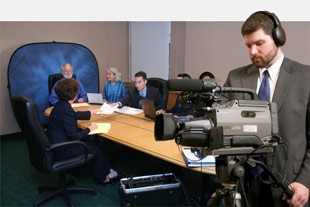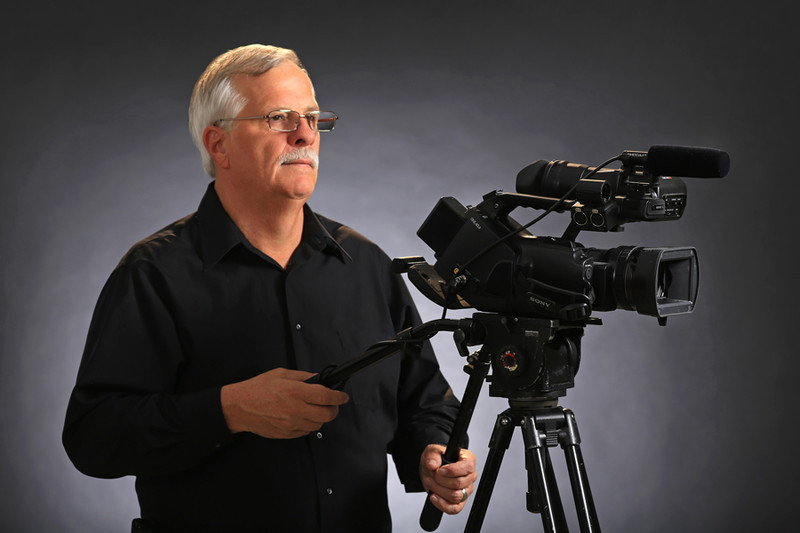Comprehensive Legal Videography for Depositions.
Comprehensive Legal Videography for Depositions.
Blog Article
The Function of Lawful Videography in Depositions and Trials
Lawful videography has actually become a necessary tool in both depositions and trials, giving a complex technique to documenting witness testaments. By catching not only the spoken word but also the subtleties of non-verbal communication, this tool enhances the reputation of testimonies and preserves vital proof for future proceedings. As lawyers significantly identify its worth, it triggers a deeper assessment of exactly how these aesthetic documents can affect juror understandings and test outcomes. What effects might these developments hold for the future of legal technique?
Value of Lawful Videography
Legal videography plays a crucial function in the documents and presentation of depositions and trials. This customized field integrates technological skills with lawful understanding to develop a reliable record of procedures that can dramatically influence instance end results. The visual aspect of lawful videography boosts the understanding of witness testimony, allowing jurors and judges to observe not only the talked words but also the disposition, feelings, and body movement of the witnesses.

The significance of lawful videography expands beyond the court; it additionally plays an essential role in maintaining proof for future reference, whether for charms or more lawful action. Its assimilation into the lawful process is important for making sure a reasonable and exact depiction of the realities, eventually adding to the quest of justice.

Refine of Legal Videography
While capturing the nuances of depositions and trials, the process of lawful videography includes several vital steps that guarantee high-grade, precise recordings. At first, an expert lawful videographer prepares by evaluating the instance products and recognizing the particular demands of the deposition or trial. This prep work consists of acquainting themselves with the participants and the context, which helps in catching relevant information.
On the day of the recording, the videographer establishes the essential equipment, which usually includes high-def electronic cameras, microphones, and appropriate lighting. Making sure optimum angles and sound quality is critical, as it straight affects the performance of the recording. The videographer connects with lawyers and participants to develop protocols, making sure that every person understands the recording process.
Throughout the deposition or trial, the videographer meticulously videotapes the proceedings, paying attention to both spoken and non-verbal hints. legal videography. This includes recording the temperament and reactions of witnesses and attorneys. After the session ends, the videographer might modify the video footage for quality and compliance with legal criteria, producing an end product that precisely reflects the procedures for future recommendation and use in legal contexts
Benefits in Depositions
The incorporation of videography in depositions supplies many advantages that enhance the total process of collecting evidence. One key advantage is the capacity to catch witness testimonies with aesthetic and acoustic fidelity, giving a much more exact depiction of the witness's attitude, tone, and body movement. This multidimensional technique allows lawyers and courts to assess integrity a lot more efficiently than conventional Go Here written records alone.
In addition, videographed depositions work as a powerful tool for protecting statement. Must a witness come to be not available for test, their taped deposition can be played in court, guaranteeing that their evidence continues to be accessible and appropriate. This facet substantially reduces the risk of shedding crucial details that can impact case end results.
Additionally, making use of browse this site lawful videography promotes much better prep work for lawyers. Examining video clip footage enables legal teams to examine and refine their approaches, recognizing staminas and weak points in their instances. This primary benefit can bring about more engaging discussions in court.
Lastly, videography boosts the total professionalism of the deposition process, instilling self-confidence in clients pertaining to the thoroughness of their legal representation. By leveraging innovation, attorneys can dramatically enhance the performance of depositions.
Effect On Tests
In numerous trials, the combination of videography can dramatically influence the discussion of proof and the court's perception. Lawful videography catches witness testaments and important proof in a dynamic layout, enabling jurors to involve with the material on multiple degrees. This aesthetic element boosts the narration aspect of a test, offering context and emotional vibration that typical text-based evidence might lack.
Moreover, video recordings can serve as effective devices for impeachment during interrogation. When inconsistencies emerge in between a witness's prior declarations and their court testament, video clip evidence offers an objective reference that can sway jurors' point of views. This immediacy and clearness can bolster the reputation of a party's narrative while simultaneously undermining opposing debates.
Furthermore, making use of videography can aid streamline complicated information, making it much more available to jurors who might have a hard time to comprehend intricate details presented solely through verbal testament. By incorporating visuals with auditory information, lawful videography can enhance retention and understanding, eventually affecting the jury's decision-making procedure. For that reason, the effect of videography in tests expands past mere looks; it plays a vital duty in shaping the lawful landscape and outcomes.
Future Trends in Legal Videography
As we look towards the future of lawful videography, several emerging fads guarantee to improve its function within the court. One significant trend is the assimilation of fabricated knowledge (AI) in video evaluation and modifying - legal videography. AI can improve the procedure of determining key moments in recorded depositions, permitting attorneys to quickly access appropriate material, therefore boosting performance in instance preparation
In addition, the rise of virtual fact (VR) and boosted reality (AR) technologies is anticipated to change just how jurors experience evidence. By immersing jurors in a substitute atmosphere, these technologies can give an extra profound understanding of complicated situations, bring about even more informed considerations.

Furthermore, the enhancing need for remote depositions, accelerated by the COVID-19 pandemic, will likely continue. Lawful videographers will require to adapt to new software and platforms to make sure top notch recordings in virtual settings.
Last but not least, the expanding focus on information safety will certainly necessitate stricter protocols for storing and sharing video clip evidence. As the lawful landscape progresses, lawful videographers should stay abreast of these trends to maintain their significance and efficiency in the judicial procedure.

Final Thought
In summary, lawful videography serves an important function in the judicial process, improving the honesty of site depositions and trials. As technology proceeds to develop, legal videography is positioned to further change its role within the legal landscape.
Report this page